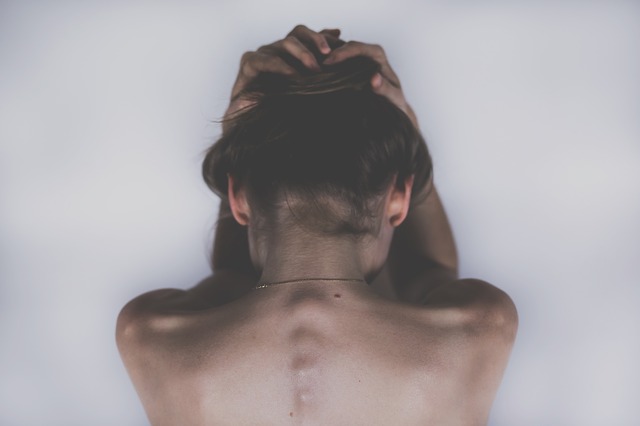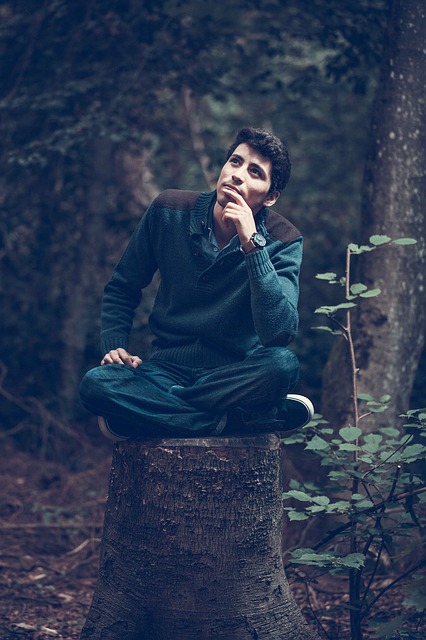This is probably one of the most talked about issues right now. Most people love social media. Sharing pictures, liking, commenting. It feels like socializing. You get in touch with people that are far away or close by. It’s fun and a time waster. It’s addictive. Every notification is a dopamine spike. We get hooked and spend more and more time on it. Too tired to do something productive, it’s easy to just scroll through Facebook or Instagram.
It’s an artificial world, where everyone is happy and on their best behavior. Or not but we are always in PR mode. “Look at this beautiful place”, “Look at this wonderful food”. If you’re not in the best place right now, it’s better not to be on Facebook or other toxic social media sites.

At least here on WordPress, people get vulnerable. They talk about their victories, their defeats and everything in between. You are not bombarded by selfies or animal abuse videos or all that other crap you see on Facebook. This is a social platform for readers, writers, and curious people.
I definitely feel much better since I stopped using Facebook so much but let’s see what science says about it:
According to a recent study by UK disability charity Scope, of 1500 Facebook and Twitter users surveyed, 62 percent reported feeling inadequate and 60 percent reported feelings of jealousy from comparing themselves to other users.
Social media can cause depression, according to this recent study. If you feel jealous or envious of your Facebook friends, it’s better not to have an account. As I’ve said before, it’s addictive, so it’s easy to keep going despite the fact that it’s making you miserable. It causes more sadness and less joy. It’s only natural for us to compare ourselves to others and on Facebook that is inevitable.

Human beings are always looking for satisfaction. Most people aren’t satisfied with their lives and virtual socializing seems safer. But it’s not. It can be in a sense but we need to feel a real connection. To be with people in real life, create bonds, etc. We weren’t made to be alone all the time. Humans are social species.
In fact, another study found that social media use is linked to greater feelings of social isolation. The team looked at how much people used 11 social media sites, including Facebook, Twitter, Google+, YouTube, LinkedIn, Instagram, Pinterest, Tumblr, Vine, Snapchat and Reddit, and correlated this with their “perceived social isolation.” Not surprisingly, it turned out that the more time people spent on these sites, the more socially isolated they perceivedthemselves to be. And perceived social isolation is one of the worst things for us, mentally and physically.
You’re shaping your reality and isolating yourself, under the false pretense of effortless socializing. You will perceive yourself to be more alone and that also contributes to depression or sadness.
Meanwhile another survey of 1,000 British women by Forza Supplements found that 82% of respondents “edit” their holiday photographs before posting them online in order to ensure that they are shown to the greatest advantage; 34% use filters on Instagram to finesse their appearance. Additionally 76% of respondents said they have felt embarrassed by photos posted by friends or family members that included them, and 57% have actually asked these friends or family members to take a photo down because they considered it so unflattering.
So, people are altering themselves to fit in, to have more likes and receive compliments. We have to be flawless at all times. This isn’t healthy, it’s shaping our perception and putting pressure on us. It’s unrealistic and harmful. Artificial is the new natural. I fear the impact of this on society.
Everything that exists, in this life, is connected to something else. We are all connected and the internet connected us even more (even if in an illusory way). A comparison is inevitable in this environment. We see other people’s lives and automatically compare it to ours. This is very toxic and can lead to depression. It also leads to jealousy.
(…) it can become a vicious cycle: feeling jealous can make a person want to make his or her own life look better, and post jealousy-inducing posts of their own, in an endless circle of one-upping and feeling jealous.
We should always look at things this way: this person looks like she has a perfect life but everyone has trials and tribulations. They don’t show you when they cry, when they scream, when they are angry and frustrated. No one is perfect or has a perfect life. If you feel like you’re in this infinite loop of jealousy, avoid Facebook or unfollow your most successful Facebook friends or the ones that like to brag about their lives.
Part of the unhealthy cycle is that we keep coming back to social media, even though it doesn’t make us feel very good. This is probably because of what’s known as a forecasting error: Like a drug, we think getting a fix will help, but it actually makes us feel worse, which comes down to an error in our ability to predict our own response. One study looked at how people feel after using Facebook and how they think they’ll feel going in. Like other studies suggested, the participants in this one almost always felt worse after using it, compared to people engaging in other activities. But a follow-up experiment showed that people generally believed that they’d feel better after using, not worse. Which of course turns out not to be the case at all, and sounds a lot like the pattern in other types of addiction.
I remember one day, I was particularly sensitive and I came across a video of animal abuse. Distressed and uneasy, I logged off and swore I would never log in again. One hour later, I was back. Just like an addict who is caught by the police, while buying drugs and buys drugs the day after that, most of us return to Facebook after seeing something distressing or disturbing. It’s important to break this cycle.

Strategies to avoid Facebook and other social media sites
Evaluate your relationship with Facebook, how it affects you and make a conscious choice. There are strategies to avoid Facebook or other social media sites. If you have a pc and a cellphone, try to make it a habit not to use Facebook on your computer, just on your phone. Spend time doing other things on your computer, like watching movies, series, doing a course, watching interesting YouTube videos or documentaries. Even better is to see your friends in real life, take a walk, enjoy nature, read a book, meditate. There is a number of great things you can do in real life.
Set a time to check Facebook or just go with the flow and you may forget it exists for a few hours. Then, check your notifications and scroll for a few minutes, ideally less than five. Don’t get sucked into the rabbit hole, there’s a world outside. A palpable, more real world.
As you detox from it, you’ll start to notice that you spend less and less time there. You will start to value your other activities and understand that Facebook and other social media sites are a trap.
Conclusion
Facebook and other sites were created and designed to keep us hooked, in order to sell things to us. Gather our information and sell it to God-knows-who. It knows almost everything about us, based on our likes. It’s also an echo-chamber, somewhere where we just see what the algorithm thinks we want to see. This is also harmful, as we should be informed about various points of view., in order to not have a very biased opinion.
It’s also important to think that our time is finite and that wasting it on toxic platforms is not the best way to live. There are other activities that are more constructive and positive.

20 responses to “Social media, mental health, and strategies to avoid overusing it”
I think when we have a purpose or doing something else, different & very excited about it – we can forget about soc media…
LikeLiked by 1 person
Definitely! I spend more time writing now and doing other productive things. I don’t feel like I waste so much time now.
LikeLiked by 1 person
I am with you totally on this one!
LikeLiked by 1 person
Awesome! ❤
LikeLike
I don’t have a Facebook account. I’m on Twitter, but I’m not connected to anyone I know in “real life”. Pretty much everyone I follow has a mental illness or some other form of chronic illness, and I’ve been very careful to keep it that way since it helps to minimize the kind of problems that you mentioned.
LikeLiked by 1 person
I’m glad that you are taking charge of your mental health by not using Facebook and minimizing the problems on Twitter. It’s very important.
LikeLiked by 1 person
I woke up one morning and decided that I just didn’t want the unhealthy relationship that Facebook was cultivating in me towards my “Facebook friends”. So I quit, pretty much there and then! I left a message up for people to message me their number if they were interested in staying in contact then 5 days later I logged in and deleted my account! I’ve not really looked back since! Though the one thing that annoys me is that some apps on phones rely on you having a Facebook so you can log in via that which just puts me off using those apps! Xx
LikeLiked by 2 people
I’m glad that you made that decision, that is a smart choice.
Facebook is very influential and lots of apps rely on it for login but I think most apps allow you to register with your email.
LikeLiked by 1 person
Thanks! I can’t remember the name of one of the apps but I had to go to it on desktop to sign up with my email as the app would only let you sign up with Facebook or log in if you were already signed up! Was a bit frustrating! Xxx
LikeLiked by 2 people
You’re welcome 🙂 I understand, it can be frustrating.
LikeLiked by 1 person
I agree. Social media can be toxic. And I admit, I am addicted to facebook and I love it on here, but your right, at least on wordpress people are real, not like facebook, where its all for show. xox
LikeLiked by 2 people
You can try to reduce the amount of time you spend there. You will notice improvements and more productivity. xx
LikeLiked by 1 person
Yes I think I will start reducing the time I spend on there I think that would be useful
LikeLiked by 1 person
Do it! It’s worth it 🙂
LikeLiked by 1 person
Reblogged this on The Idealist and commented:
This beautifully written and well-created post couldn’t stop me from reblogging it. One of the kinds that I was looking for.
LikeLiked by 2 people
Great post, my biggest current concern is the impact that social media is having on mental health and the lack of care and responsibility that goes with it. It is no coincidence that depression, anxiety and suicide rates have inreased with the growth of social media.
These platforms need to be used to help educate and reach people, and the education system globally, seriously needs to look at some form of class for social media and its dangers.
The fact that in your post you have to explain to people ways that they can cut down on how to use social media says it all. If you cannot live without loggin in to some form of social media site then you have a problem period.
LikeLiked by 2 people
[…] https://scarlettsbpdcorner.wordpress.com/2019/01/30/social-media-and-mental-health/ […]
LikeLiked by 1 person
[…] https://scarlettsbpdcorner.wordpress.com/2019/01/30/social-media-and-mental-health/ — Read on scarlettsbpdcorner.wordpress.com/2019/01/30/social-media-and-mental-health/ […]
LikeLiked by 1 person
This is a great article!
LikeLike
I’m glad that you liked it. Thank you so much for your comment.
LikeLiked by 1 person